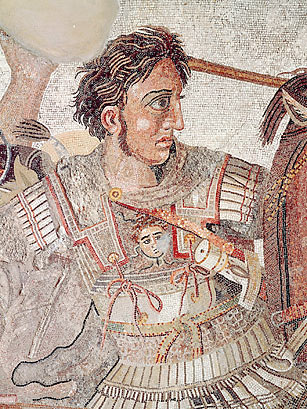
The world knows no more precocious or proud a conqueror than Alexander the Great. According to legend — and legends are legion about this fellow — the young Macedonian prince carried the blood of the Olympian god Zeus in his veins and overcame a bullying father and cloying mother to lead a triumphant army across the Bosporus to the near ends of the earth. He defeated the mighty Persian Empire, ever the scourge of the Greeks, razed its once mighty capital of Persepolis to the ground and tried to stitch together an incredible cosmopolitan empire from the Indus to the Hellespont — all while he was in his 20s. He died from an arrow wound at the tender age of 32, still harboring dreams of finding greater shores and nations to bring under his yoke. His imperial project proved too great for his followers, who soon set about warring with each other soon after Alexander's death.
In the European tradition, Alexander has always been a talisman of western dominance and countless colonial adventurers in the 18th and 19th centures voyaged through what's now the Middle East and South Asia while very self-consciously styling themselves as latter day Alexanders. Yet, according to most sources, Alexander "went native" over the course of his campaigns, assuming the trappings of the Persians, Soghdians and others whom he encountered and mingled with. Unsurprisingly, the Muslim world has a whole canon of Alexander literature, particularly in Persian, depicting the irrepressible conqueror as a champion of Islam riding to its defense.
Whoever he was, Alexander left behind cities in his name that would last centuries, not least two that are currently in the news: Alexandria, Egypt, the great trading center of the ancient world that's now the site of turbulent protests against the ruling regime in Cairo and Afghanistan's Kandahar, derived from the Persian "Iskandar," or Alexander, and a longstanding stronghold of the Taliban.